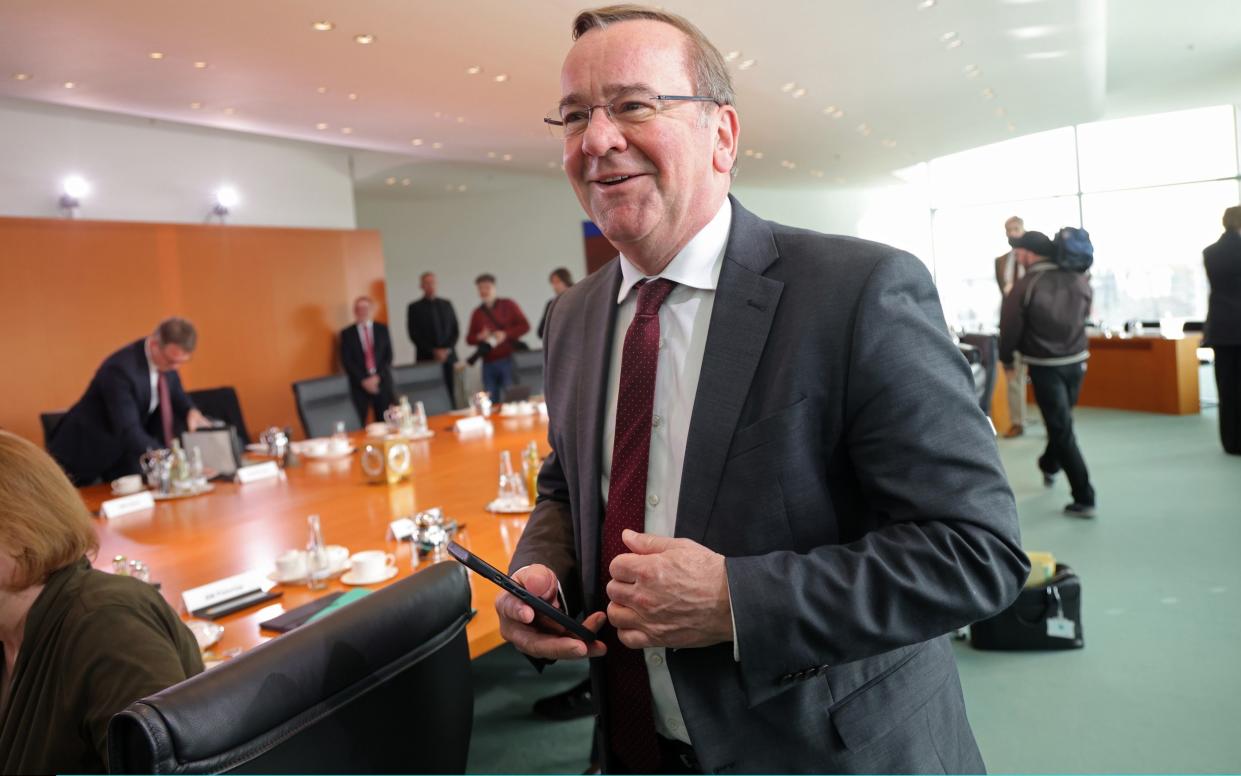Germany rules out any further weapons deliveries to Ukraine

Germany’s Defence Minister has ruled out sending any further weapons or equipment to Ukraine, admitting that the Bundeswehr will already not be able to replenish its stocks by 2030.
Blighted by chronic underinvestment since the end of the Cold War, the German army is now in even worse shape after having sent equipment, ammunition and vehicles like the Leopard 2 main battle tank to the battlefields of Ukraine.
“To put it bluntly, like other nations, we have a limited inventory,” said Boris Pistorius.
“As federal Defence Minister, I cannot give everything away,” he told German broadcaster Welt.
Gaps in the military will be impossible to bridge by 2030, he added.
The German government wants to grow the Bundeswehr to a 200,000-strong force and spend €130 billion on new equipment by the end of the decade.
“We all know that the existing gaps cannot be completely closed by 2030. It will take years, everyone is aware of that,” he said.
Mr Pistorius said increasing the defence budget to reach the Nato spending target of two per cent of national output, from currently around 1.5 per cent, was his highest priority.
“If that is then set in motion at the end of the [legislative] period, then I would be satisfied,” he added.
Mr Pistorius, who became defence minister after his predecessor stepped down after a series of political blunders, has inherited the fraught task of rebuilding Germany’s ailing military after decades of neglect.
Rebuilding the military is a crucial component of Chancellor Olaf Scholz’s vision for a “zeitenwende”, or turning point, in German policy.
Defence budget is lagging
Three days after Russia invaded Ukraine, Mr Scholz announced the creation of a €100 billion fund to turn the Germany military into the most powerful in Europe.
However, more than a year later, the German military remains beset by shortages of equipment and personnel.
Only around €13 billion of the fund has been allocated so far, with Germany’s regular defence budget also lagging behind inflation.
Eva Högl, the parliamentary armed forces commissioner, has estimated that modernising the Bundeswehr would cost at least €300 billion.
An annual report on the armed forces produced by the commission last month revealed the extent of the problem facing Mr Pistorius and those involved in the modernisation effort.
It uncovered widespread shortages of even basic equipment such as clothing, with soldiers frequently complaining about uncomfortable uniforms.
The German army was also found to be desperately short of effective communications equipment like radios, as well as crucial gear used to protect troops from the effects of nuclear, biological or chemical weapons.

 Yahoo News
Yahoo News 
